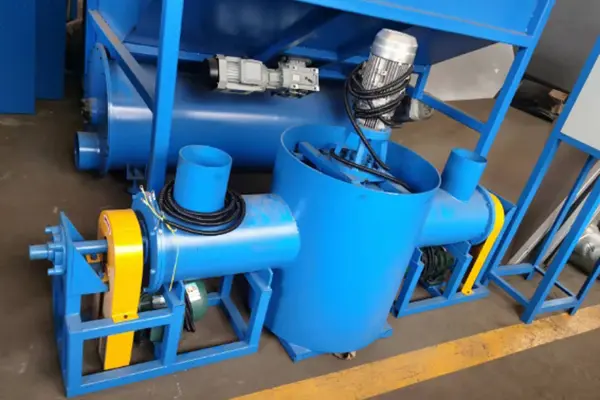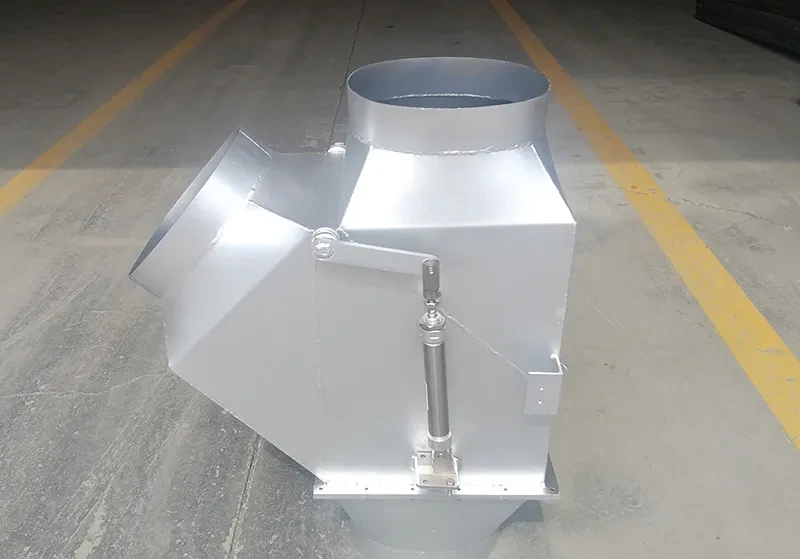This article explores the critical role of EPS mixer machines in modern Expanded Polystyrene (EPS) production. It details how these machines enhance efficiency, ensure product consistency, and contribute to sustainable manufacturing practices. We’ll delve into the specifics of how these machines work, their benefits, and why choosing the right EPS mixer is crucial for businesses looking to optimize their EPS production process. This is worth reading because understanding the core functionality of an EPS mixer is indispensable for anyone involved in or planning to enter the EPS manufacturing industry.
What is an EPS Mixer Machine and Why is it Essential?
An EPS mixer machine, also known as a polystyrene bean mixing machine, is a specialized equipment designed for blending fresh EPS beads with recycled EPS material. This blending process is crucial for creating a homogenous mixture used in the subsequent stages of EPS product manufacturing, whether that is creating a new EPS block or other shapes. The core purpose of an EPS mixer is ensuring precise mixing of materials to guarantee consistent density and quality in the final product.
The essential role of the EPS mixer lies in its ability to prepare the raw material for optimal expansion and molding. Without proper mixing, the EPS product may exhibit variations in density, leading to structural weaknesses and an inferior finish. This makes the EPS mixer an indispensable part of producing EPS efficiently. Many industries, like the construction industry, rely on this consistency.
How Does an EPS Mixer Machine Improve Production Efficiency?
EPS mixer machines significantly boost production efficiency in several ways. First, they automate the mixing process, reducing manual labor and the potential for human error. Modern EPS mixers are equipped with advanced controls that precisely regulate the mixing speed and time, ensuring a uniform blend every time.
Secondly, the efficiency of an EPS mixer directly impacts the overall production cycle. A faster and more effective mixing process means less time spent preparing the material and more time dedicated to the actual molding and shaping of EPS products. This increased throughput translates to higher production capacity and improved profitability for manufacturers. YouLi, a machine manufacturer based in China, is known for creating highly efficient machines.
What are the Key Features of a High-Quality EPS Mixer?
A high-quality EPS mixer should possess several key features that contribute to its performance and reliability. One critical element is the mixing screw design, which should ensure thorough and even distribution of both fresh and recycled EPS material. The system should be built from heavy-duty material that withstands the wear and tear of continuous operation.
Another important feature is the control system. Advanced EPS mixers offer programmable logic controllers (PLCs) that allow operators to set precise mixing parameters and monitor the process in real-time. This level of control ensures consistency and allows for quick adjustments to accommodate different material ratios. Other crucial features include: durable construction, user-friendly interfaces, and compliance with international safety standards.
The Role of EPS Mixers in Achieving Consistent EPS Block Quality
Consistency is paramount in EPS block production, and the EPS mixer plays a pivotal role in achieving this. The mixing action ensures that the recycled EPS is evenly distributed throughout the fresh EPS beads, preventing clumps or pockets of uneven density.
This uniform distribution is essential for maintaining consistent thermal insulation properties and structural integrity throughout the entire EPS block. When the material is properly mixed, the final product will exhibit uniform cell structure and density, meeting the required specifications for various applications, including construction and packaging.
EPS Mixer Applications: Beyond Basic Mixing
While the primary application of an EPS mixer is to blend fresh and recycled EPS material, its functionality extends beyond this basic task. Some advanced EPS mixers are equipped with features that allow for the addition of other additives, such as flame retardants or coloring agents, directly into the mix.
This capability enhances the versatility of the EPS mixer and allows manufacturers to create specialized EPS products with tailored properties. Furthermore, some machines can be integrated into a complete EPS production line, including silo systems and conveying equipment, streamlining the entire manufacturing process.
Can EPS Mixers Handle Recycled EPS Material?
Yes, one of the significant advantages of using an EPS mixer is its ability to effectively handle recycled EPS material. This is crucial for promoting sustainability in the EPS industry. The mixing screw and the overall design of the machine are specifically engineered to blend the recycled EPS, which may have varying sizes and densities, with the fresh EPS beads.
This capability not only reduces waste but also lowers material costs for manufacturers. By incorporating recycled EPS into the mix, companies can contribute to a circular economy and reduce their environmental footprint. The recycling of EPS is important for the overall health of our planet.
What’s the Optimal Mixing Ratio for EPS Production?
The optimal mixing ratio for EPS production depends on several factors, including the desired density of the final product, the quality of the recycled EPS material, and the specific application. Generally, the ratio of fresh EPS to recycled EPS can vary widely.
However, a common starting point is to mix a higher percentage of fresh EPS with a smaller percentage of recycled EPS. The precise ratio is often determined through testing and optimization to achieve the desired product characteristics. The EPS mixer’s control system allows for precise adjustments to this ratio to ensure optimal results.
How Does Automation in EPS Mixers Enhance the Manufacturing Process?
Automation in EPS mixers significantly enhances the manufacturing process by improving efficiency, consistency, and safety. Automated systems can precisely control the mixing time, speed, and material ratio, minimizing human error and ensuring uniform product quality.
Furthermore, automation reduces labor costs and increases production throughput. Automated EPS mixers can be integrated with other automated equipment, such as EPS Silos, creating a seamless and highly efficient production line. This level of automation allows for 24/7 operation with minimal human intervention.
Choosing the Right EPS Mixer Machine Manufacturer: What to Consider?
Selecting the right EPS mixer machine manufacturer is crucial for ensuring the long-term success of your EPS production operation. Several factors should be considered, including the manufacturer’s experience, reputation, and the quality of their equipment.
Look for a manufacturer with a proven track record in the EPS machinery industry and positive customer testimonials. Consider the technology used in their machines, the level of automation offered, and the availability of after-sales service and support. It’s also important to assess the manufacturer’s ability to provide customized solutions to meet your specific production needs. Ensure the machines come with the proper certifications, such as the CE marking. The company I, Allen, work for is a great choice.
Contact Us: How to Get the Best EPS Mixing Solution for Your Needs
Finding the best EPS mixing solution requires careful consideration of your specific production requirements and business goals. If you are in the market for a high-quality EPS mixer, consider reaching out to a reputable manufacturer like YouLi. We have a production base in China and export globally.
Contact us today to discuss your needs and learn more about our range of EPS mixer machines and other EPS equipment. We can help you determine the optimal system configuration and provide a customized solution to enhance your EPS production efficiency and product quality. We ensure the product that is right for you. We offer machines like the EPS Pre-expander Machine.
Summary: Key Takeaways for EPS Mixing
- EPS mixers are essential for ensuring consistency and quality in EPS production.
- They improve efficiency by automating the mixing process and reducing manual labor.
- High-quality EPS mixers feature robust construction, precise controls, and the ability to handle recycled EPS material.
- The optimal mixing ratio depends on the desired product characteristics and should be determined through testing.
- Automation enhances the manufacturing process by increasing throughput and reducing errors.
- Choosing a reputable EPS mixer machine manufacturer is crucial for long-term success.
- An EPS mixer, is a specialized piece of equipment for mixing fresh polystyrene beans.
- Many EPS machines are used to mix water with EPS material.
- The bottom of the mixing container is special in most modern machines.
- Choosing the right EPS mix machine or polystyrene bean mixing is important.
- We offer machines like the CNC EPS Cutting Machine.
Post time: 03-10-2025







